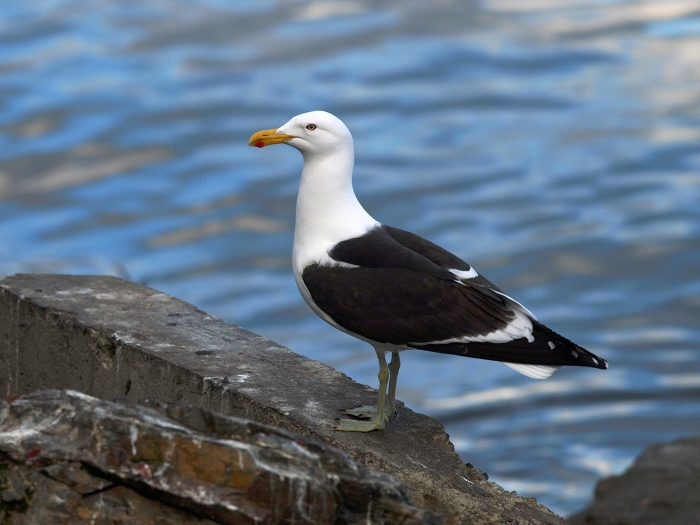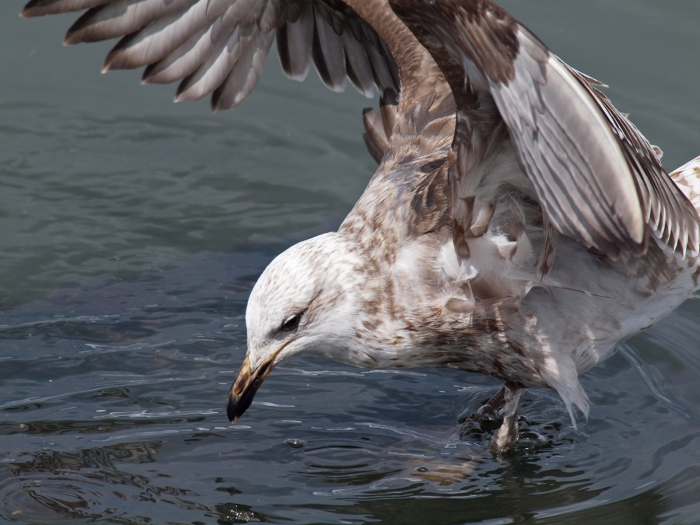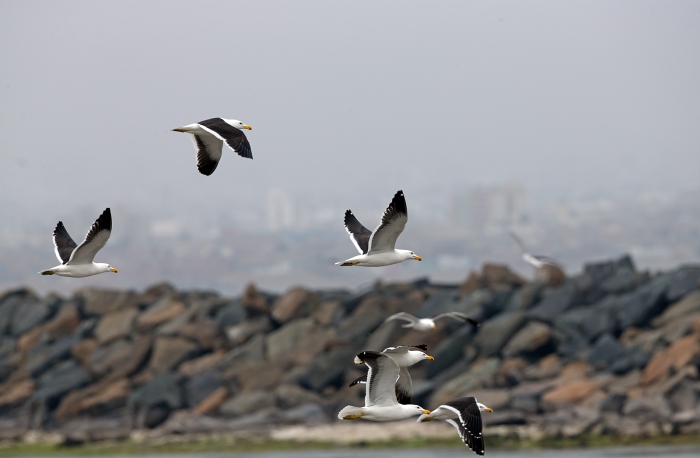Return of Bird of the Week: Kelp Gull

Adult Kelp Gull, Ushaia, Tierra del Fuego, Argentina
WC doesn’t intend to neglect the Southern Hemisphere’s birds. Here is one of the most widely distributed birds of the bottom half of the planet, the Kelp Gull. It’s found throughout the Southern Ocean, from Australia to South America to Africa, and from coastal Antarctica to Ecuador. It’s probably the most widely distributed gull on the planet. An omnivore, tolerant of mankind’s activities and highly adaptable, you have to admire it even if you don’t like it dining menu, which includes penguin chicks and carrion.

Second Year Kelp Gull, Tierra del Fuego National Park, Argentina
Kelp Gulls are three year gulls; that is, they take three years to reach maturity. WC was there in late November, the start of breeding season, so, by definition, juvenile birds weren’t around yet. There was a lot of breeding activity, though.

Kelp Gulls mating, Antarctic Peninsula
(The pinkish cast in the photo is from an algae bloom on the late spring snow.) These birds were mating just a few miles north of the Antarctic Circle.
This species’ range really is extraordinary. Here is a flock of adult Kelp Gulls in Lima, Peru, at about 10° S latitude. Isolated birds have been seen as far north as the United States, and it has been documented to occasionally breed in the south coastal states.

Adult Kelp Gulls, Lima, Peru
It’s the equivalent of finding a North American Gull in both the Arctic Ocean and Costa Rica. Note this isn’t migration; these birds are year-round residents in these places. It really is extraordinary adaptability.
For more bird photos please visit Frozen Feather Images.
Nearly spring planting season in NW iowa. This is when we see flocks of gulls, terns, pelicans and others land in the freshly turned soil for earthly delights and worms on their way north. They magically reappear early fall with soybean combining and comb the bare fields for other earthly delights going South.
iowa is definitely not a “flyover” state for everyone.